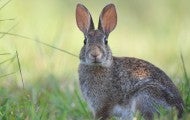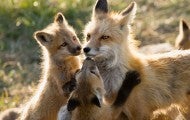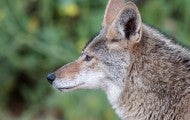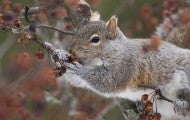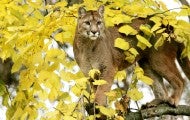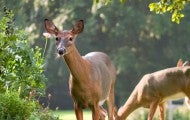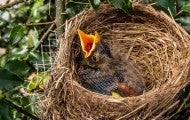There are several species of wild rabbits—most are Eastern cottontail rabbits—who live across most of North America. Cottontails like to live at the edges of open areas. In fact, they are rarely found in dense forests or open grassland. Learn More About Rabbits Contents Why are there so many rabbits...
Foxes are omnivores, hunting very small animals and scavenging in cities and towns where freely available pet food and garbage can make life easier. It’s not unusual for a fox to be seen out and about during the day. Learn More About Foxes Foxes are afraid of people and will usually run away when...
If you spot a coyote in your neighborhood, relax: Most coyotes avoid people. “Seeing a coyote out during the day is not a cause for alarm, especially in the spring and summer when they’re out looking for food for their pups,” says Lynsey White, HSUS director of humane wildlife conflict resolution...
Every day, more and more wildlife habitat is lost to the spread of development. Give a little back by building your own humane backyard! It doesn't matter whether you have a small apartment balcony, a townhouse with a sliver of ground, a suburban yard, a sprawling corporate property or a community...
Once robust, populations of cougars (also known as mountain lions or pumas) have declined drastically across most of their range in the Americas. The population decline is due to the impact of extensive hunting and predator control, in addition to continued habitat loss and fragmentation. Cougars...
